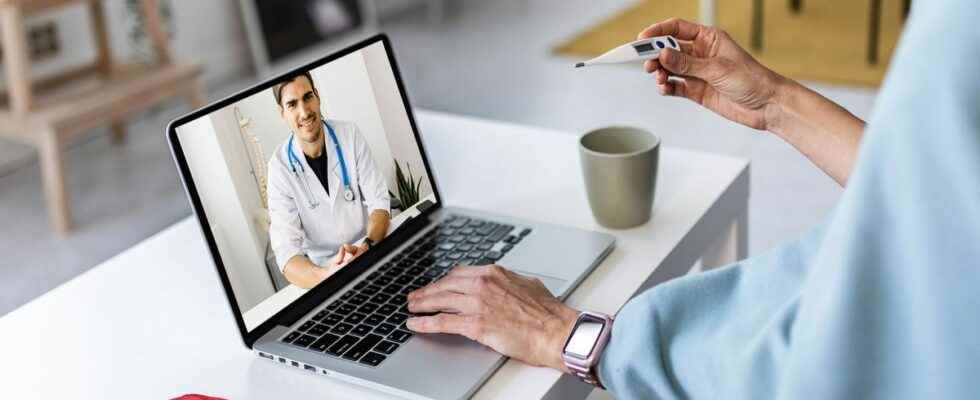Published on
Updated
Reading 2 mins.
in collaboration with
Dr Gérald Kierzek (Medical Director)
While the practice of teleconsultation has developed to improve access to patient care, particularly during the Covid epidemic, the massive use of this mode of consultation is not always relevant. The Haute Autorité de Santé issues a safety flash in this regard, to be extra vigilant.
Appendicitis turning into peritonitis after a delay in diagnosis, an abscess on the foot badly approached resulting in the death of an elderly man from sepsis, a delay in chemotherapy for an undetected cause… These are the three concrete and striking examples that the Haute Autorité de Santé (HAS) highlighted December 1 in a security flash to talk about teleconsultation and the risks of its misuse. This flash concerns both practitioners and patients.
One million teleconsultations per month
The alert comes as teleconsultation has become a reflex among many doctors and in many homes. The practice, which complemented the face-to-face consultation, aimed to improve access to patient care. Accessible throughout France since 2018, it especially exploded during the exceptional health situation due to the Covid-19 epidemic. Thus in 2021, around 1 million teleconsultations took place per month. A record!
But teleconsultation is not a panacea, and should not replace a clinical examination, as the HAS reminds us.
“Like any practice, there are specific risks to patient safety, such as diagnostic errors and delays. These risks must be limited by an assessment of the relevance of remote care, by specific patient questioning, by appropriate communication, as well as by coordination with other healthcare professionals”.
“Bad medicine” which does not replace a physical consultation
The reminder is important enough to be shared, according to Dr. Gérald Kierzek, emergency physician and medical director of Doctissimo.
“We mistakenly think that teleconsultation is a solution to medical deserts. But no, there are risks, it will never replace a physical consultation, a clinical examination. Not to mention the conditions that further degrade this online consultation: poor speed, poor video…”.
Ultimately, the doctor evokes a real loss of chances on the patient side and an easy solution on the practitioner side.
“Teleconsultation is a practice that may be possible between two consultations with your GP. But priority must be given to the GP and not to a degraded care solution. All that is bad medicine, without follow-up, without a doctor, and that can only lead to a problematic situation” he insists.
A message which he had echoed a little earlier on Twitter.
Patient safety flash of the @HAS_health. Undiagnosed appendicitis which becomes peritonitis, plantar abscess which leads to death,… 1/ There are no minor or major emergencies 2/ NOTHING replaces a medical consultation with examination of the patient https://t.co/4MYGtr0zJU
— Dr Gérald KIERZEK⚡?⚕️ (@gkierzek) December 13, 2022
In its safety flash, theHAS insists on 3 key messages:
- The specificities of teleconsultation must be taken into account by carrying out an appropriate clinical examination;
- If teleconsultation is not suitable, the patient must be able to benefit from a physical examination;
- Coordination with other health professionals is essential.
